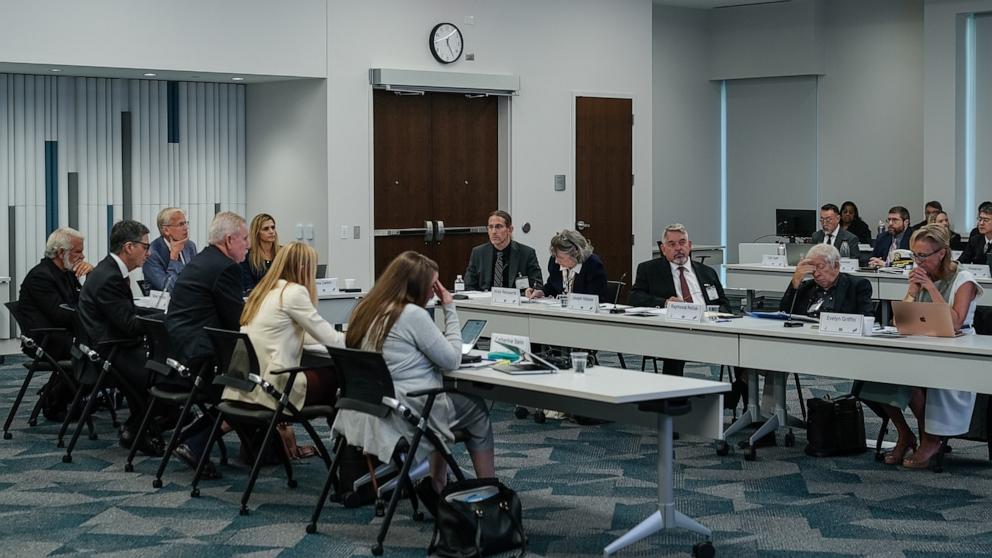Vaccines in the US? They’re not just shots. They’re what we talk about at dinner, in waiting rooms, and on TV. They bring up many feelings like fear, hope, trust, or doubt. The CDC group that suggests vaccine guides, ACIP, was going to vote on changing when newborns get the hepatitis B shot, but the vote was put off. It might seem like no big deal, but it is. The delay makes us think about some big questions: Who should we believe? What’s best for families? And who gets to make these choices?
Right now, the rule is clear: babies in the US get the hepatitis B shot within a day of being born. Doctors say it protects them right away. The virus is tough. It hurts the liver, stays there forever, and can cause cancer. If the mom has the virus, the baby is at high risk. But even if she doesn’t, mistakes can still happen. Medical records aren’t always right, and sometimes infections don’t appear right away. Giving the shot early has been the standard thing to do for years.
The talk wasn’t about whether the vaccine works. Everyone agrees it does. It was about when to give it. Some people wondered about waiting until a baby is a month old, unless the mom has hepatitis B. They thought it might be easier for parents who are already busy. But others didn’t agree, worrying that even a short delay could put babies in danger. Why take a chance when what we’re doing now is working well?

The CDC’s delay feels important because it shows how people don’t agree on this.
At the meeting, people felt very strongly about it. Experts looked at data. Parent groups told their stories. Even politicians spoke up. Senator Bill Cassidy, who’s also a doctor, said that putting off the shot could hurt babies. He wondered if vaccine rules are based on facts or on worries and politics. Now, even a small change to how things are usually done feels like a big deal.
For parents, it’s not just about numbers but about keeping their child safe. Imagine a new parent holding their baby. They’re tired and maybe worried. A nurse comes in with a vaccine. That’s when the rules matter. That’s when trust is important. It used to be that parents believed doctors without question. But now, after the pandemic, many parents ask a lot of questions. They look things up online and want to make sure they’re doing the right thing. The hepatitis B delay shows that families want to have a say in the decision now.
Doctors are seeing this change, too. Talking about vaccines isn’t easy anymore. Parents come in with information, some good, some bad. Some are okay with vaccines but want to change when they’re given. Others don’t really trust them. For doctors who care for children, the CDC’s delay makes their job harder. They don’t have clear advice to give worried parents.
The most important thing is trust. Pausing the vote lets scientists look at more information, which sounds fair. But it might make people wonder if the experts aren’t sure or are giving in to pressure. These days, that worry spreads fast online. Some will say the CDC is being safe. Others will say it’s being weak. Either way, families are stuck in the middle. The decision to delay the vaccine is already having an impact. A dad in California might wonder if the vaccine is safe right after birth. A new parent in Florida might worry about their baby being unprotected if the shot is delayed. A nurse in Ohio might have parents doubting what she says. What happens in Washington affects families everywhere, and they’re getting mixed messages.
The thing to remember is that the facts about the vaccine haven’t changed at all. The hepatitis B vaccine is safe and important for protecting kids. What’s changing is how people think about it. The pandemic made people not trust things as much. Parents want more honesty and good reasons. They don’t want to be told what to do; they want to be heard. That makes every vaccine talk harder and more emotional.
The CDC delaying the vote doesn’t fix anything. It just puts things on hold. The timing question will come up again. Experts will talk about the facts. Politicians will take sides. Parents will share their stories. Until then, hospitals will keep giving the shot as they have been. Life goes on, but the worry stays. It also shows how healthcare rules work these days in America. Vaccine schedules used to be quiet choices made by scientists. Most families didn’t even notice. But now, every small change is big news. Every delay starts a fight. When medical advice feels political and people don’t trust things, even one delayed vote becomes a symbol.
Was the delay a good idea or a mistake that’ll make things worse? Maybe it was both. It shows that experts want to be careful. But it also shows that the system is worried about getting criticized. For parents, this means more worry. For doctors, more hard talks. For politicians, another chance to argue.
For parents, it comes down to their child. A baby in their arms. A nurse with a shot. The decision between feeling safe and feeling worried.
The hepatitis B vote was delayed. But the main thing isn’t timing. It’s trust. Trust between parents and doctors, people and the government, and science and everyone else. And that trust is shaky. Once it’s broken, it’s hard to fix.
In the end, it’s not only about when a baby gets a shot. It’s about whether families feel like the system cares about them. And right now, it feels unclear.


